At the age of 16, he had his stories published in newspapers, and immediately after that, he threw himself into writing and journalism with all his passion. At the age of 17, he published his first work , The Bottle of Literature . In the field of journalism, in the 1930s and 1940s, when he was still very young, he was the editor-in-chief of Saturday Novel , the editorial secretary of famous newspapers such as Trung Bac Sunday, Ngay Nay, Ha Noi Newspaper ... and collaborated with many newspapers in Hanoi and Saigon.
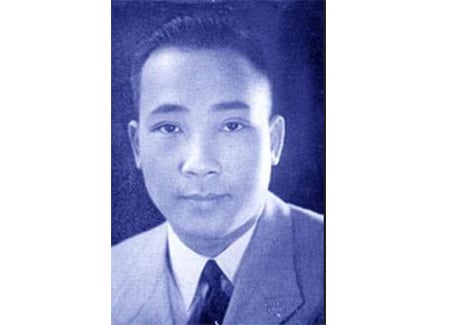
Writer Vu Bang
PHOTO: DOCUMENTARY
According to the yearbook of Modern Vietnamese Writers (Writers Association Publishing House), writer Vu Bang's birth name was Vu Dang Bang, born in 1913 in Hanoi, originally from Binh Giang District, Hai Duong Province. In addition to the pen name Vu Bang, he also signed with other pen names: Tieu Lieu, Vit Con, Thien Thu, Van Ly Trinh, Le Tam, Hoang Thi Tram. He died in 1984 in Ho Chi Minh City.
Some published works: Jar of Literature (satirical collection, 1931); Alone in the Dark (novel, 1937); Story of Two People (novel, 1940); Crime and Regret (novel, 1940); Lightning and Rain (novel, 1941); Quych and Quac (children's story, 1941); Water fern (novel, 1944); Cai (memoir, 1942); Moc Hoa Vuong (novel, 1953); Delicious Pieces of Hanoi (essay, 1955); Thuy Tien Tet (1956); Missing the Twelve (essay, 1960); Strange Pieces of the South (memoir, 1969); Forty Years of Lies (memoir, 1969); Research on Novels (1951, 1955); Love of Words (collection of stories, 1970); The Talkative Writer (1971); The Pre-War Laughing Trees (1971); The Ghost of Mrs. Hoat's House (novel, 1973); Anthology of Vu Bang (3 volumes, Literature Publishing House, 2000); Those Who Sow the Wind (2 volumes, Literature Publishing House, 2003); Complete Works of Vu Bang (4 volumes, Literature Publishing House, 2006); Vu Bang , Newly Discovered Works (Collected by Lai Nguyen An; Saigon Culture Publishing House, 2010); Hanoi in the Whirlwind (Women Publishing House, 2010); Culture... Untangling (Women Publishing House, 2012)... and several other translated books. He was awarded the State Prize for Literature and Arts, 2nd term, 2007.
At the end of 1946, Vu Bang and his family evacuated to the resistance zone. At the end of 1948, returning to Hanoi, he began participating in activities in the revolutionary intelligence network (code name X10). In 1954, assigned by the organization, he went to Saigon, leaving his wife and son in Hanoi, continuing to write and work until April 30, 1975. Returning to Hanoi after 1975, Vu Bang was officially recognized as a member of the Vietnam Writers Association.
Writer and journalist Vu Bang is a representative face of modern Vietnamese literature and journalism, with profound contributions both before and after the August Revolution of 1945. He stands out not only for his writing of reports, essays, and journalism, but also for his talented, sophisticated, and emotional literary style, leaving a distinct mark in the national literature.
Vu Bang's journalistic reports, sketches, and portraits are sharp, full of humanity, and imbued with national spirit. He did not hesitate to criticize the semi-feudal colonial society, protect the poor workers, and at the same time use his pen as a fighting tool. He wrote many short stories and novels with a social realism orientation, but also full of romance, reflecting the spiritual life of urban people. Typical works of this period include: The scent of early green rice, The ceremony, The last night of a love letter...
Vu Bang's journalistic style is sharp, flexible, and graceful. His articles are often lightly satirical but profound, and his writing style is soft but profound. He does not write dryly, but always tells stories, creates images, evokes emotions with everyday language that is polished, accessible to the public but not easy. He is a pioneer in bringing literary elements into journalism, creating a unique style among the press at that time.
Vu Bang's literary style is imbued with profound lyrical essays, especially in "Thuong nho muoi thap " - a masterpiece of the literary essay genre, in which he skillfully interweaves memories, emotions and folk culture, creating a symphony of nostalgia. His language is rich in imagery, music , rhythmic sentences, soft as poetry, evoking scenery and emotions in a subtle way. His writing is the pain of people living away from home, the pride of national culture, the struggle of people living in a divided country with a spirit of patriotism and nostalgia.
He is a "linguistic artist" in both the fields of literature and journalism, a bridge between reality and the soul of the Vietnamese people through a period of historical turmoil. It can be said that the two works "Thuong nho muoi thap" and "Forty nam noi lie" are two outstanding peaks in Vu Bang's literary and journalistic career, clearly demonstrating his essay style, lyricism and profound humanistic thoughts.
The two works "Thuong nho muoi tieu" and "Forty nam noi lie" show two sides of Vu Bang's style: One side is lyrical, profound, full of national and emotional feelings. The other side is a humorous, self-deprecating tone, reflecting the spirit of freedom and sharp criticism. Both are proof of the linguistic talent, emotions and intellectual courage of a great writer, worthy of being a monument in modern Vietnamese literature and journalism. (to be continued)
Source: https://thanhnien.vn/nha-van-vu-bang-tu-tru-tinh-sau-lang-den-cham-biem-tham-thuy-185250622211453382.htm


![[Photo] President of the Cuban National Assembly visits President Ho Chi Minh's Mausoleum](https://vphoto.vietnam.vn/thumb/1200x675/vietnam/resource/IMAGE/2025/10/1/39f1142310fc4dae9e3de4fcc9ac2ed0)

![[Photo] Keep your warehouse safe in all situations](https://vphoto.vietnam.vn/thumb/1200x675/vietnam/resource/IMAGE/2025/10/1/3eb4eceafe68497989865e7faa4e4d0e)
![[Photo] Hanoi morning of October 1: Prolonged flooding, people wade to work](https://vphoto.vietnam.vn/thumb/1200x675/vietnam/resource/IMAGE/2025/10/1/189be28938e3493fa26b2938efa2059e)





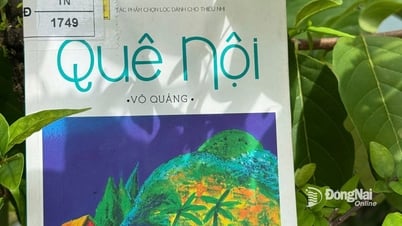

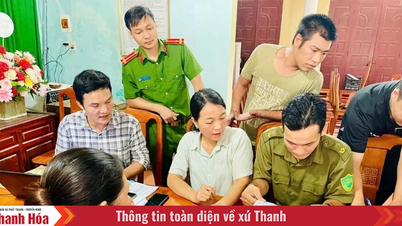








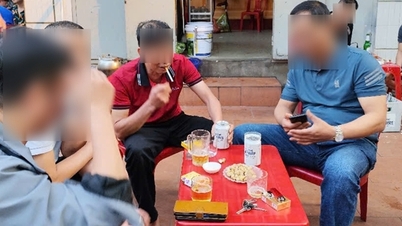
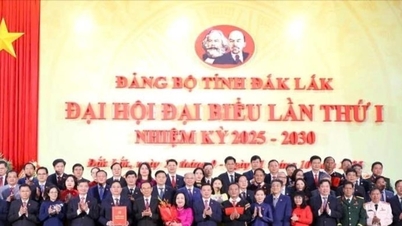

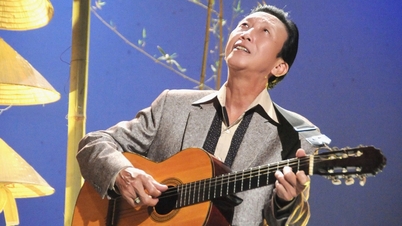
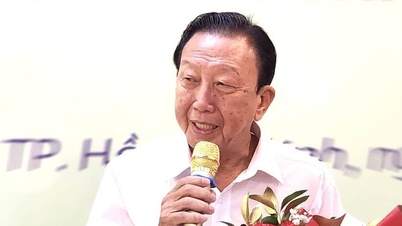








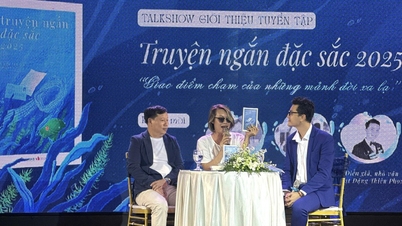
































































Comment (0)